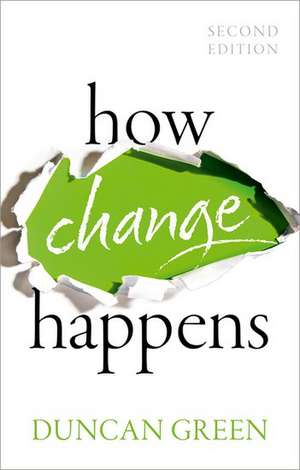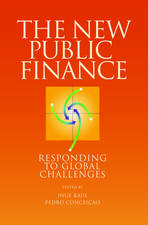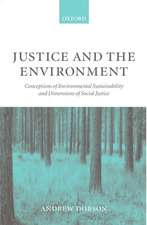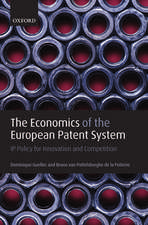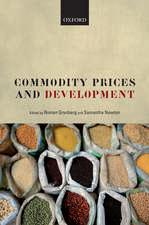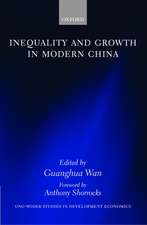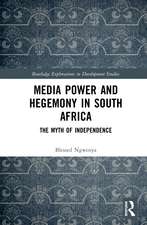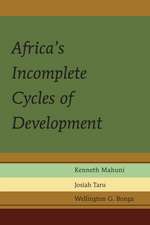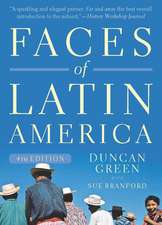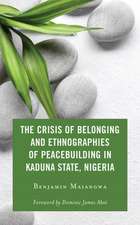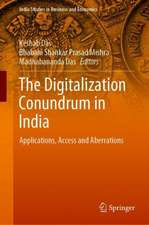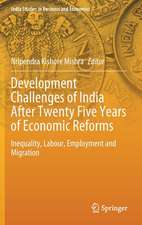How Change Happens
Autor Duncan Greenen Limba Engleză Paperback – 13 iun 2024
| Toate formatele și edițiile | Preț | Express |
|---|---|---|
| Paperback (2) | 55.28 lei 10-16 zile | +22.63 lei 7-13 zile |
| OUP OXFORD – 13 iun 2024 | 55.28 lei 10-16 zile | +22.63 lei 7-13 zile |
| OUP OXFORD – 31 mai 2018 | 57.66 lei 31-37 zile | +23.07 lei 7-13 zile |
| Hardback (1) | 106.22 lei 10-16 zile | |
| OUP OXFORD – 27 oct 2016 | 106.22 lei 10-16 zile |
Preț: 55.28 lei
Preț vechi: 64.65 lei
-14% Nou
Puncte Express: 83
Preț estimativ în valută:
10.58€ • 11.00$ • 8.85£
10.58€ • 11.00$ • 8.85£
Carte disponibilă
Livrare economică 11-17 februarie
Livrare express 08-14 februarie pentru 32.62 lei
Preluare comenzi: 021 569.72.76
Specificații
ISBN-13: 9780198899952
ISBN-10: 0198899955
Pagini: 304
Dimensiuni: 138 x 215 x 22 mm
Greutate: 0.32 kg
Ediția:2
Editura: OUP OXFORD
Colecția OUP Oxford
Locul publicării:Oxford, United Kingdom
ISBN-10: 0198899955
Pagini: 304
Dimensiuni: 138 x 215 x 22 mm
Greutate: 0.32 kg
Ediția:2
Editura: OUP OXFORD
Colecția OUP Oxford
Locul publicării:Oxford, United Kingdom
Recenzii
I can see How Change Happens being a book I come back to over the years and thats where the value will be for me.
This book is hugely ambitious... Maybe now is a good time to read How Change Happens, to reflect on how we got to the state we are in and to prepare some alternative ideas, so that when the next crisis comes we will be able to use them to build a more generous and equitable future.
It's an engaging overview with lots of good examples.
The book is ideas-packed, often exhilarating.
In this powerfully argued book, Duncan Green shows how we can make major changes in our unequal and unjust world by concerted action, taking full note of the economic and social mechanisms, including established institutions, that sustain the existing order. If self-confidence is important for the effective agency of deprived communities, so is a reasoned understanding of the difficult barriers that must be faced and overcome. This is a splendid treatise on how to change the actual world — in reality, not just in our dreams.
In How Change Happens, Duncan Green points to a simple truth: that positive social change requires power, and hence attention on the part of reformers to politics and the institutions within which power is exercised. It is an indispensable guide for activists and change-makers everywhere.
It was George Orwell who wrote that "The best books... are those that tell you what you know already." Well in Duncan's book How Change Happens I have found something better: A book that made me think differently about something I have been doing for my entire life. He has captured so much in these pages, drawing on global and national and local change and examples from past and present. But what makes this book so insightful is that at all times we are able to see the world through Duncan's watchful eyes: From his time as a backpacker in South America to lobbying the WTO in Seattle and his many years with Oxfam, this is someone who has always been watching and always been reflecting.
Duncan has given us a remarkable tour de force, wide-ranging, readable, combining theory and practice, and drawing on his extensive reading and rich and varied experience. How Change Happens is a wonderful gift to all development professionals and citizens who want to make our world a better place. Only after reading and reflecting have I been able to see how badly we have needed this book. The evidence, examples, analysis, insights and ideas for action are a quiet but compelling call for reflection on errors and omissions in ones own mindset and practice. It is as relevant and important for South as North, for funders as activists, for governments as NGOs, for transnational corporations as campaigning citizens. We are all in this together. How Change Happens should stand the test of time. It is a landmark, a must read book to return to again and again to inform and inspire reflection and action.
This is a gem of a book. Lucidly written and disarmingly frank, it distils the authors decades of experience in global development practice to share what can work and what may not, in changing power relations and complex systems. Again and again I found myself agreeing with him. All of us—practitioners and academics—who want a better world, and are willing to work for it, must read this book.
This fascinating book should be on the bedside of any activist and many others besides. Duncan Green is the rare global activist who can explain in clear yet analytical language what it takes to make change happen. Ranging widely from Lake Titicaca in Peru to rural Tajikistan, from shanty towns to the halls of power, this is a book sprinkled with wisdom and insight on every page.
How Change Happens is a positive guide to activists. When one feels despondent and disheartened then reading this book will help to encourage, energise and inspire one to participate in the creation of a better world. Duncan Green makes the case with vivid examples that significant changes have taken place and continue to take place when social and environmental activists employ skilful means and multiple strategies such as advocacy, campaigning, organising and building movements. It is a wonderful book. Read it and be enthused to join in the journey of change.
Those who are purely interested in understanding better how societies change will find a treasure trove of theoretical insights and empirical evidence. Those who want to change the world through formal politics will learn a lot. Civil servants who want to make things better for citizens, or business leaders who want to do more than simply maximise profits will also find plenty of lessons.
The world committed to global transformative change in 2015, with the 2030 Agenda and targets in the Paris Climate Agreement to stay well below 2°C and achieve carbon neutrality by the second half of the century. We need to understand how change happens in order to accelerate our pathway to a safe future. Duncan Green's book is a timely and badly needed guide to bringing about the necessary social and political change.
This book is hugely ambitious... Maybe now is a good time to read How Change Happens, to reflect on how we got to the state we are in and to prepare some alternative ideas, so that when the next crisis comes we will be able to use them to build a more generous and equitable future.
It's an engaging overview with lots of good examples.
The book is ideas-packed, often exhilarating.
In this powerfully argued book, Duncan Green shows how we can make major changes in our unequal and unjust world by concerted action, taking full note of the economic and social mechanisms, including established institutions, that sustain the existing order. If self-confidence is important for the effective agency of deprived communities, so is a reasoned understanding of the difficult barriers that must be faced and overcome. This is a splendid treatise on how to change the actual world — in reality, not just in our dreams.
In How Change Happens, Duncan Green points to a simple truth: that positive social change requires power, and hence attention on the part of reformers to politics and the institutions within which power is exercised. It is an indispensable guide for activists and change-makers everywhere.
It was George Orwell who wrote that "The best books... are those that tell you what you know already." Well in Duncan's book How Change Happens I have found something better: A book that made me think differently about something I have been doing for my entire life. He has captured so much in these pages, drawing on global and national and local change and examples from past and present. But what makes this book so insightful is that at all times we are able to see the world through Duncan's watchful eyes: From his time as a backpacker in South America to lobbying the WTO in Seattle and his many years with Oxfam, this is someone who has always been watching and always been reflecting.
Duncan has given us a remarkable tour de force, wide-ranging, readable, combining theory and practice, and drawing on his extensive reading and rich and varied experience. How Change Happens is a wonderful gift to all development professionals and citizens who want to make our world a better place. Only after reading and reflecting have I been able to see how badly we have needed this book. The evidence, examples, analysis, insights and ideas for action are a quiet but compelling call for reflection on errors and omissions in ones own mindset and practice. It is as relevant and important for South as North, for funders as activists, for governments as NGOs, for transnational corporations as campaigning citizens. We are all in this together. How Change Happens should stand the test of time. It is a landmark, a must read book to return to again and again to inform and inspire reflection and action.
This is a gem of a book. Lucidly written and disarmingly frank, it distils the authors decades of experience in global development practice to share what can work and what may not, in changing power relations and complex systems. Again and again I found myself agreeing with him. All of us—practitioners and academics—who want a better world, and are willing to work for it, must read this book.
This fascinating book should be on the bedside of any activist and many others besides. Duncan Green is the rare global activist who can explain in clear yet analytical language what it takes to make change happen. Ranging widely from Lake Titicaca in Peru to rural Tajikistan, from shanty towns to the halls of power, this is a book sprinkled with wisdom and insight on every page.
How Change Happens is a positive guide to activists. When one feels despondent and disheartened then reading this book will help to encourage, energise and inspire one to participate in the creation of a better world. Duncan Green makes the case with vivid examples that significant changes have taken place and continue to take place when social and environmental activists employ skilful means and multiple strategies such as advocacy, campaigning, organising and building movements. It is a wonderful book. Read it and be enthused to join in the journey of change.
Those who are purely interested in understanding better how societies change will find a treasure trove of theoretical insights and empirical evidence. Those who want to change the world through formal politics will learn a lot. Civil servants who want to make things better for citizens, or business leaders who want to do more than simply maximise profits will also find plenty of lessons.
The world committed to global transformative change in 2015, with the 2030 Agenda and targets in the Paris Climate Agreement to stay well below 2°C and achieve carbon neutrality by the second half of the century. We need to understand how change happens in order to accelerate our pathway to a safe future. Duncan Green's book is a timely and badly needed guide to bringing about the necessary social and political change.
Notă biografică
Dr Duncan Green is Senior Strategic Adviser at Oxfam GB and Professor in Practice in International Development at the London School of Economics. He is author of How Change Happens (OUP, October 2016) and From Poverty to Power: How Active Citizens and Effective States can Change the World (Oxfam International, 2008, second edition 2012) as well as several books on Latin America. He is Director of the Global Executive Leadership Initiative training programme on influencing.
